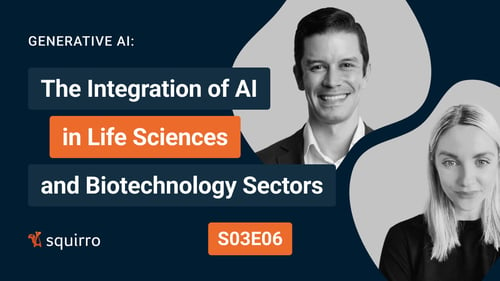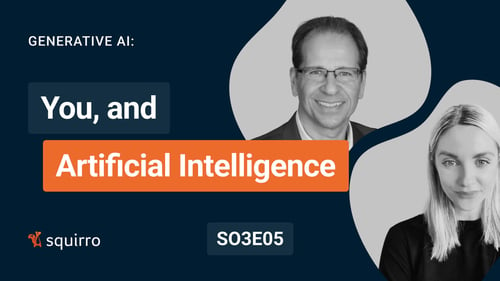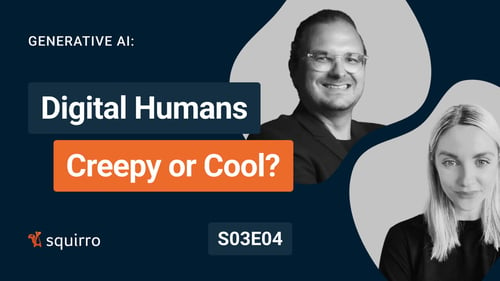In episode nine of Redefining AI Lauren Hawker Zafer and Thomas Diggelmann, Machine Learning Engineer at Squirro, take a look at The End of Search – Question Answering. Their discussion starts with Thomas’ journey from a physics degree at the ETH Zurich to his flourishing and ever-developing career in machine learning. In exploring this, they touch upon Thomas’ academic background in physics and how the problem-solving skills that he acquired there are helping him tackle various complex issues in machine learning.
Ending Search as We Know It
One of Squirro’s audacious goals is to end the era of search, for good. To do so, machine learning engineers like Thomas are working towards information coming to people, rather than people having to look for information themselves. To reach this goal, search engines need to be provided information on a user’s wider context, such as their intent, goals, emotional state and recent search history. Currently, search engines compute a user’s intent by means of analyzing all available information and matching it to wider statistical patterns and trends. However, to make search obsolete, additional statistical data is required so that the user’s intent can automatically be inferred before he even needs to type a question into the search bar. In that sense, ending search remains a vision for the future.
The Importance of Language for Machines
Humans convey information through language, so it is important to teach search engines how to understand language more naturally. Capturing nuanced semantic relationships between words, like sarcasm or emotions, requires powerful models that are trained on large-scale natural language datasets. A major challenge in developing such models is to obtain large amounts of relevant, high-quality data on which to train them. Fortunately, there are ways to leverage already trained models that can be reused or fine-tuned for specific target tasks. With the right method, a customer can intuitively retrieve information and make their search more efficient.
About the Speaker
Thomas has been working as a software engineer and specialist in machine learning for 20 years, both as a co-founder and employee of an early artificial intelligence start-up. He has led various projects for Swissport, NASA, DHL, Fedex, and Bauern Verlag AG. As part of his master thesis, a collaboration with Google research Zurich, he also worked extensively on applications of natural language processing. His solid professional experience combined with his scientific studies enable Thomas to identify innovative approaches in the field of AI and successfully execute complex projects. Thomas holds a Master of Science and Physics from the ETH Zurich and is fluent in both English and German


